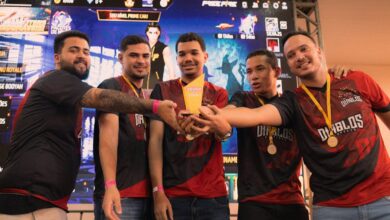Guardiola praises City’s progress but frustrated with Rodri injury

Guardiola praises City’s progress but frustrated with Rodri injury
Estimated Reading Time: Approx. 10 minutes
- Guardiola’s Mixed Emotions: Pep Guardiola praises Man City’s impressive progress and form but is significantly frustrated by Rodri’s injury during the Brentford match.
- City’s Strong Form: Manchester City is showing formidable progress, cohesion, and tactical understanding, placing them firmly in contention for major honors.
- Rodri’s Irreplaceability: Rodri is a pivotal midfielder whose absence creates a challenging void due to his unique blend of defensive stability and passing acumen.
- Tactical Challenge Ahead: Rodri’s injury at a crucial time will test Guardiola’s tactical genius and the squad’s depth and resilience in the title race and Champions League.
- Squad Management Importance: The situation highlights the critical need for proactive player load management, tactical versatility, and robust squad depth in elite football.
- Guardiola praises City’s progress but frustrated with Rodri injury
- The Ascent Continues: City’s Undeniable Progress
- The Rodri Riddle: A Midfield Maestro’s Absence
- Navigating the Title Race: Tactical Adjustments and Squad Depth
- Conclusion
- FAQ
Manchester City continues its relentless pursuit of glory, demonstrating formidable form and a renewed sense of purpose on the pitch. Following a hard-fought victory against Brentford, manager Pep Guardiola found himself in a familiar state of mixed emotions. While lauding his team’s undeniable progress and the quality of their performance, a palpable sense of frustration accompanied his assessment, stemming from the early withdrawal of pivotal midfielder Rodri due to injury.
This duality encapsulates the modern football landscape for top clubs: the elation of consistent success intertwined with the ever-present anxiety of player fitness. Guardiola’s comments offered a candid glimpse into the emotional rollercoaster of managing a team competing on multiple fronts, where every win is a step forward, but every injury can feel like two steps back.
The Ascent Continues: City’s Undeniable Progress
The recent run of results for Manchester City speaks volumes. With key players returning to form and new signings integrating seamlessly, the squad has clicked into a gear that makes them incredibly difficult to stop. Guardiola highlighted the team’s growing cohesion and tactical understanding, emphasizing how various components are now gelling together to produce comprehensive and dominant displays.
Their ability to control possession, create numerous scoring opportunities, and maintain defensive solidity has been exemplary. The attacking fluidity, spearheaded by players like Foden, Haaland, and De Bruyne, has reached peak levels, carving open defenses with incisive passing and intelligent movement. This resurgence has not gone unnoticed, positioning City firmly in contention for major honours once again.
Guardiola’s satisfaction with the team’s trajectory is well-founded. He often speaks about the process and the daily grind, and seeing the fruits of that labor manifest in consistent performances is a testament to the players’ dedication and the coaching staff’s meticulous planning. The collective effort to push boundaries and maintain elite standards is a hallmark of this Manchester City era, and it continues to be evident in their play.
The adaptability of the squad has also been a significant factor in their progress. Faced with different opponents and varying tactical challenges, City has consistently found ways to impose their game. This tactical flexibility, honed over years under Guardiola’s tutelage, allows them to switch formations and approaches mid-game, keeping rivals guessing and exploiting weaknesses with surgical precision.
The Rodri Riddle: A Midfield Maestro’s Absence
However, the prevailing mood of accomplishment was significantly tempered by the concern surrounding Rodri. The Manchester City boss was forced to withdraw his midfielder in the first half of the win over Brentford. This incident cast a shadow over an otherwise impressive evening, leaving Guardiola visibly vexed about the potential repercussions of losing such a vital cog in his machine.
Rodri’s importance to Manchester City cannot be overstated. He is the anchor in midfield, the silent architect who dictates the tempo, breaks up opposition attacks, and initiates City’s intricate passing moves. His positional awareness, ball retention, and ability to read the game provide a critical layer of stability that allows City’s more attacking talents to flourish without undue defensive pressure.
The frustration expressed by Guardiola is understandable. Losing a player of Rodri’s caliber, especially at such a crucial juncture of the season, creates an immediate void that is incredibly challenging to fill. His unique blend of defensive robustness and passing acumen makes him almost irreplaceable within City’s carefully constructed system. The fear of a prolonged absence would undoubtedly disrupt their rhythm and force immediate tactical reassessments.
While City boasts a deep squad, finding a like-for-like replacement for Rodri is a monumental task. Players like Mateo Kovacic or Matheus Nunes can offer creativity and drive, but none possess Rodri’s specific profile as a deep-lying midfield destroyer and master controller. This forces Guardiola to consider either a reshuffle of existing personnel or a slight alteration to the team’s overall strategic approach.
Navigating the Title Race: Tactical Adjustments and Squad Depth
The timing of Rodri’s injury could not be worse, with the Premier League title race heating up and crucial Champions League fixtures looming. Guardiola’s genius will be tested as he seeks to mitigate the impact of this significant blow. The challenge now lies in how the team adapts and whether other players can step up to fill the void, even if only partially, during Rodri’s recovery period.
This situation underscores the perennial importance of squad depth in elite football. While City is renowned for its wealth of talent, injuries to key individuals can expose even the strongest collective. Guardiola has a history of finding innovative solutions to player absences, often deploying players in unconventional roles or tweaking formations to maximize the strengths of available personnel.
Potential solutions could involve shifting John Stones into a deeper midfield role, a position he has excelled in previously, or giving more responsibility to Kovacic or Nunes to screen the defense and orchestrate play. Each option presents its own set of advantages and compromises, requiring careful consideration from the coaching staff to maintain the team’s balance and potency.
The upcoming fixtures will serve as a critical test of City’s resilience and tactical flexibility. How they perform without their midfield lynchpin will offer a definitive insight into their true championship credentials and ability to overcome adversity. The pressure will be on every player to elevate their game and ensure that Rodri’s absence does not derail their impressive momentum.
Actionable Steps for Elite Squad Management:
Managing a top-tier football club involves navigating a constant stream of challenges, from player form to unforeseen injuries. Here are three actionable steps teams can take to mitigate risks and maintain peak performance:
-
Proactive Player Load Management: Implement advanced sports science protocols to monitor player fatigue, muscle strain, and overall physical output. By tracking data meticulously, clubs can adjust individual training loads, strategically rotate players, and identify early warning signs of injury, thus proactively preventing setbacks for critical personnel like Rodri.
-
Cultivate Tactical Versatility: Develop and regularly train multiple tactical systems and player roles. This ensures the team is not overly reliant on one specific individual or setup. If a key player is unavailable, the team can seamlessly switch to an alternative formation or strategy, utilizing the strengths of the available squad without a significant drop in operational efficiency.
-
Invest in Robust Squad Depth: Beyond the starting eleven, ensure every position has high-quality, ready-to-perform backups. This involves strategic recruitment to bring in players who can genuinely step in and maintain standards, as well as fostering the development of academy talents. A truly deep squad transforms potential weaknesses, like an injury to a star player, into an opportunity to showcase collective strength and resilience.
Real-World Example: Liverpool’s Defensive Crisis
A poignant real-world example of how a key injury can impact a title challenge is Liverpool’s 2020-21 season. After winning the Premier League title, they suffered devastating long-term injuries to key central defenders Virgil van Dijk, Joe Gomez, and Joël Matip. Despite having a strong squad, the sheer volume and importance of these absences forced manager Jürgen Klopp to deploy midfielders in defense and significantly hampered their ability to compete for the title, ultimately leading to a drop in performance and a battle for a Champions League spot rather than the league crown.
Conclusion
Pep Guardiola’s post-match reflections perfectly encapsulate the high-stakes environment of elite football. While he can rightfully take immense pride in Manchester City’s current progress and the quality of their performances, the shadow of Rodri’s injury serves as a stark reminder of the fragile balance between success and misfortune. The coming weeks will undoubtedly test Guardiola’s managerial acumen and the collective strength of his squad.
City’s pursuit of silverware continues, driven by outstanding form and an unwavering belief in their system. However, the unexpected challenge posed by Rodri’s absence adds an intriguing layer to their narrative. It will be fascinating to observe how they navigate this hurdle and whether their proven ability to adapt can keep them firmly on course for another memorable season.
What are your thoughts on Manchester City’s progress and Rodri’s injury? How do you think Guardiola will adapt his tactics to compensate for his absence? Share your predictions and insights in the comments below!
FAQ
What is Pep Guardiola’s main concern after the Brentford match?
Guardiola is significantly frustrated by Rodri’s injury, which forced the midfielder off early, despite praising Manchester City’s overall progress and performance.
Why is Rodri considered so vital to Manchester City’s system?
Rodri is the team’s anchor in midfield, crucial for dictating tempo, breaking up attacks, and initiating passing moves. His positional awareness and ball retention provide critical stability, making him almost irreplaceable.
How might Rodri’s absence impact Manchester City’s title challenge?
His injury, especially at a crucial point in the season, could disrupt City’s rhythm and force tactical reassessments. It will test Guardiola’s ability to adapt and the squad’s depth to maintain momentum in the Premier League and Champions League.
What tactical adjustments might Guardiola consider to cover Rodri’s role?
Guardiola might consider shifting John Stones into a deeper midfield role or giving increased responsibility to players like Mateo Kovacic or Matheus Nunes to screen the defense and orchestrate play.
What are key strategies for elite clubs to manage player injuries effectively?
Elite clubs should implement proactive player load management using sports science, cultivate tactical versatility to avoid over-reliance on single players, and invest in robust squad depth with high-quality backups.




